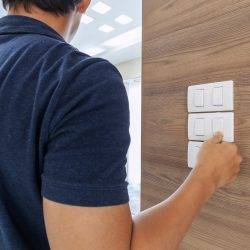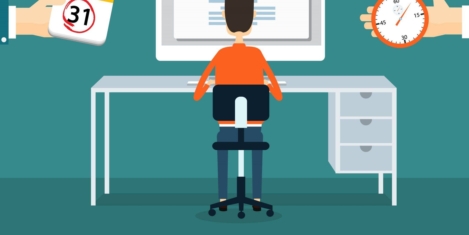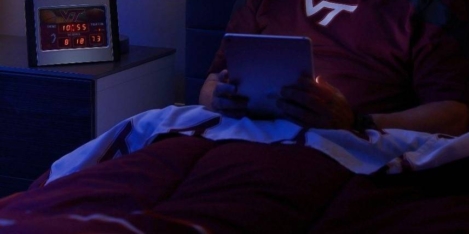To provide the best experiences, we use technologies like cookies to store and/or access device information. Consenting to these technologies will allow us to process data such as browsing behaviour or unique IDs on this site. Not consenting or withdrawing consent, may adversely affect certain features and functions.
The technical storage or access is strictly necessary for the legitimate purpose of enabling the use of a specific service explicitly requested by the subscriber or user, or for the sole purpose of carrying out the transmission of a communication over an electronic communications network.
The technical storage or access is necessary for the legitimate purpose of storing preferences that are not requested by the subscriber or user.
The technical storage or access that is used exclusively for statistical purposes.
The technical storage or access that is used exclusively for anonymous statistical purposes. Without a subpoena, voluntary compliance on the part of your Internet Service Provider, or additional records from a third party, information stored or retrieved for this purpose alone cannot usually be used to identify you.
The technical storage or access is required to create user profiles to send advertising, or to track the user on a website or across several websites for similar marketing purposes.
 A new report claims to have found a lack of commitment amongst UK businesses to address their impact on the environment and contribution to climate change, with only 10 percent having set a carbon reduction target, while just under half of companies (49 percent) use even the most basic sustainability measures, such as recycling bins for office waste.
A new report claims to have found a lack of commitment amongst UK businesses to address their impact on the environment and contribution to climate change, with only 10 percent having set a carbon reduction target, while just under half of companies (49 percent) use even the most basic sustainability measures, such as recycling bins for office waste.








 All the chatter around the growth of flexible working might suggest it has now become the norm, but an academic paper refutes that view by revealing a third of all UK workers believe those who work flexibly create more work for others. A similar proportion believe their career will suffer if they use flexible working arrangements. This is the main finding from Dr Heejung Chung from the University of Kent who set out to analyse data from the 2011 Work-Life Balance Survey conducted by the government. Specifically, she wanted to examine whether stigma against flexible workers exists, who is most likely to hold such beliefs and who is most likely to suffer from it. The research also found that the majority of respondents that held negative views against flexible workers were male, while women and especially mothers were the ones who were most likely to suffer from such stereotypes.
All the chatter around the growth of flexible working might suggest it has now become the norm, but an academic paper refutes that view by revealing a third of all UK workers believe those who work flexibly create more work for others. A similar proportion believe their career will suffer if they use flexible working arrangements. This is the main finding from Dr Heejung Chung from the University of Kent who set out to analyse data from the 2011 Work-Life Balance Survey conducted by the government. Specifically, she wanted to examine whether stigma against flexible workers exists, who is most likely to hold such beliefs and who is most likely to suffer from it. The research also found that the majority of respondents that held negative views against flexible workers were male, while women and especially mothers were the ones who were most likely to suffer from such stereotypes.
 Over a third (35 percent) of UK workers continue to work when then get home from the office, claims research from
Over a third (35 percent) of UK workers continue to work when then get home from the office, claims research from 
 Fifty percent of UK employees feel their employers don’t understand them or their potential – higher than the European average of 46 percent according to a study of over 2,000 workers across the UK, France, Germany, Italy and the Netherlands from ADP. The research found that 40 percent of UK workers are unhappy with the quality of leadership, with only France reporting slightly higher figures, where 52 percent saying they feel misunderstood by their employer. This was followed closely by Italy (48 percent) and Germany (46 percent), while the Netherlands reported the most positive results with only a third stating such feelings (35 percent). However, UK and European employees are more likely to feel their direct reports understand them better, with 61 percent reporting that their managers know and support them, and want to see them succeed. This shows that those working more closely together enjoy better relationships, which in turn is likely to lead to better quality of work and greater productivity. The lesson for businesses is that close relations between all staff, regardless of seniority, matter.
Fifty percent of UK employees feel their employers don’t understand them or their potential – higher than the European average of 46 percent according to a study of over 2,000 workers across the UK, France, Germany, Italy and the Netherlands from ADP. The research found that 40 percent of UK workers are unhappy with the quality of leadership, with only France reporting slightly higher figures, where 52 percent saying they feel misunderstood by their employer. This was followed closely by Italy (48 percent) and Germany (46 percent), while the Netherlands reported the most positive results with only a third stating such feelings (35 percent). However, UK and European employees are more likely to feel their direct reports understand them better, with 61 percent reporting that their managers know and support them, and want to see them succeed. This shows that those working more closely together enjoy better relationships, which in turn is likely to lead to better quality of work and greater productivity. The lesson for businesses is that close relations between all staff, regardless of seniority, matter.


 Well over half of workers do not think enough support is given to employees suffering from mental ill health in the workplace, as according to research released today by Personal Group a startling 39 percent of respondents said their workplace does not offer any mental health support for employees. And of all employees surveyed 66 percent felt their employer does not offer enough support for employee mental health. This corporate apathy felt by employees arrives at a time when awareness of mental health issues in the UK is on the rise. 80 percent of respondents said they had noticed an overall increase in awareness of mental health generally in the UK, however a staggering 62 percent said they noticed no change in the levels of awareness in the workplace.
Well over half of workers do not think enough support is given to employees suffering from mental ill health in the workplace, as according to research released today by Personal Group a startling 39 percent of respondents said their workplace does not offer any mental health support for employees. And of all employees surveyed 66 percent felt their employer does not offer enough support for employee mental health. This corporate apathy felt by employees arrives at a time when awareness of mental health issues in the UK is on the rise. 80 percent of respondents said they had noticed an overall increase in awareness of mental health generally in the UK, however a staggering 62 percent said they noticed no change in the levels of awareness in the workplace.




 One year on from #MeToo – just one in four workers agree that international media coverage has helped to improve their workplace culture, according to new research on sexual harassment from Acas. The workplace experts commissioned the study from YouGov to find out whether media reporting on #MeToo and high-profile celebrity cases have had any effect on British workplaces. Only a third (30 percent) of survey respondents believe that incidents of sexual harassment in workplaces have decreased in the last five years.
One year on from #MeToo – just one in four workers agree that international media coverage has helped to improve their workplace culture, according to new research on sexual harassment from Acas. The workplace experts commissioned the study from YouGov to find out whether media reporting on #MeToo and high-profile celebrity cases have had any effect on British workplaces. Only a third (30 percent) of survey respondents believe that incidents of sexual harassment in workplaces have decreased in the last five years. 


 The majority (89 percent) of employers say in-building mobile coverage is important to their business, but only 17 percent of businesses have full bar indoor mobile coverage, claims a new report. ‘Building Connections’, commissioned by Vilicom argues that as 78 percent of adults own a smartphone and check it every 12 minutes on average, and with the number of UK landlines falling 35 percent from 10m in 2010 to 6.4m in 2017, a lack of mobile coverage seriously threatens productivity, revenue, damage to reputation and customer satisfaction for organisations of all kinds.
The majority (89 percent) of employers say in-building mobile coverage is important to their business, but only 17 percent of businesses have full bar indoor mobile coverage, claims a new report. ‘Building Connections’, commissioned by Vilicom argues that as 78 percent of adults own a smartphone and check it every 12 minutes on average, and with the number of UK landlines falling 35 percent from 10m in 2010 to 6.4m in 2017, a lack of mobile coverage seriously threatens productivity, revenue, damage to reputation and customer satisfaction for organisations of all kinds.








December 3, 2018
Ten UK employment law changes to look out for in 2019
by Alan Price • Comment, Legal news
(more…)